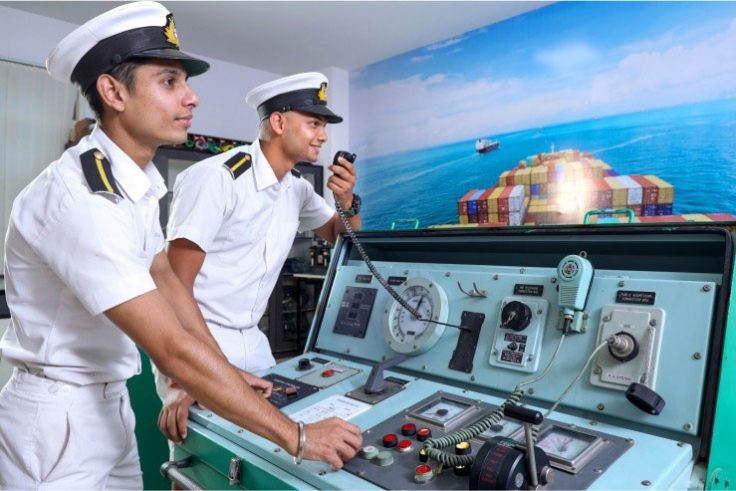If you’re looking for a fulfilling, well-paying job, marine transportation might the right one for you. It’s no wonder that positions in the industry are among the highest-paying jobs out there! That said, they’re not easy to get or without competition. If you want to know what you need to do to land such a job and begin working toward your career in this exciting field, then read on!
It is said that living in an era of globalization,we would like to narrow the whole list down to eight best paying jobs in marine transport.
Marine transportation job description
A marine transportation job may involve working on a ship as part of the crew or working in a port. As part of the crew, you would be responsible for the operation and maintenance of the vessel, as well as assisting with cargo operations. If you worked in a port, you would be responsible for loading and unloading cargo, as well as coordinating maritime transportation.

8 best paying jobs in marine transportation (+Salaries)
After knowing about is marine transportation a good career path, If you are wondering how many jobs are available in marine transportation, go below to see the best paying jobs in marine transportation and also salaries:
1. Marine transportation managers earned a median salary of $93,680 in 2016, according to the U.S. Bureau of Labor Statistics (BLS).
2. Marine transportation inspectors earned a median salary of $88,210 in 2016, according to the BLS.
3. Pilots and navigators who work in marine transportation earned a median salary of $84,660 in 2016, according to the BLS.
4. Marine engineers and naval architects who work in marine transportation earned a median salary of $83,130 in 2016, according to the BLS.
5. Ship and boat captains who work in marine transportation earned a median salary of $78,200 in 2016, according to the BLS.
6. First mates and chief mates of vessels that transport cargo or passengers on the seas earned a median salary of $74,590 in 2016, according to the BLS.
7. Ship engineers who work in marine transportation earned a median salary of $71,870 in 2016, according to the BLS.
8. Sailors and marine oilers who work on deck or perform engine room tasks on seagoing vessels transported earnings of $52,930 per year as of May 2019
Is marine transportation a good career path?
Marine transportation is a great career path for those interested in the maritime industry. The median salary for marine transport professionals is $64,000, and the job outlook is very positive, with a projected growth of 22% by 2026. Marine transportation is a stable and secure industry and offers great opportunities for advancement. There are many different types of marine transport jobs available, so there is sure to be a perfect fit for everyone.
There are plenty of well-paying jobs in the property-casualty insurance industry. Here are some of the best paying jobs in property-casualty insurers, along with information on where to get one
How to get a job in marine transportation industry?
If you’re considering a career in marine transportation, you’re probably wondering how to get started. Fortunately, there are a few steps you can take to increase your chances of landing a job in this exciting industry.
1. Get a degree in maritime transportation or a related field.
While you don’t necessarily need a degree to work in marine transportation, it will give you a leg up on the competition. A maritime transportation degree will provide you with the skills and knowledge you need to be successful in this field.
2. Get experience working on boats or in the shipping industry.
Experience is always valuable, especially when it comes to landing a job in marine transportation. If you have experience working on boats or in the shipping industry, be sure to highlight this on your resume and during interviews. Employers will be impressed by your real-world experience and will be more likely to hire you as a result.
3. Network with people in the maritime industry.
One of the best ways to get a job in marine transportation is to network with people who already work in the field. Attend maritime trade shows and events, join relevant professional organizations and reach out to contacts you may have in the maritime industry. The more people you know, the better your chances of hearing about job openings and landing an interview.
4. Stay up-to-date on industry news and trends.
Employers are looking for candidates who are knowledgeable about the

The Pros Of A Maritime Transportation Career
There are many reasons why a maritime transportation career can be a great choice. Here are just a few of the benefits:
- Good pay. Maritime transportation jobs tend to be well-paid, especially compared to other types of jobs in the transportation industry.
- . Stability. Maritime transportation is a long-established industry with steady demand for its services. This means that job security is relatively high in this field.
- Flexibility. maritime transportation careers offer a good deal of flexibility in terms of geographical location and hours worked. This can be a great benefit for those who want to have a more balanced work-life lifestyle.
- Variety. There are many different types of maritime transportation jobs available, from working on cargo ships to operating passenger ferries. This means that there is likely to be a role that is a good fit for your skills and interests.
- . Opportunities for advancement. If you excel in your role, there are often opportunities to move up into management positions within maritime transport companies
The Cons Of A Maritime Transport Career
Working in the maritime transport industry can be a great career choice for those with a passion for travel and adventure. However, there are some aspects of this industry that can be less than ideal. Here are a few of the potential cons of working in maritime transport:
- long hours: Maritime transport workers often have to work long hours, sometimes even weeks at a time. This can make it difficult to maintain a healthy work-life balance.
- dangerous conditions: Working on a ship can be dangerous, especially during bad weather or in rough seas. There is always the risk of injury or even death when working in this industry.
- low pay: Maritime transport jobs often don’t pay very well, especially when you consider the long hours and dangerous conditions. This can make it difficult to make a good living working in this industry.
- away from home: Because maritime transport jobs involve travel, workers often have to be away from home for long periods of time. This can be tough on relationships and families.
- uncertain future: The maritime transport industry is constantly changing, which can make it difficult to plan for the future. There is always the possibility that your job could be eliminated or that you could be laid off due to changes in the market or technology.
FAQ
Do You Need A Degree To Work In Marine Transportation?
Most people who work in marine transportation do not need a degree, but there are some jobs that require specific training or certification.
What Skills Do You Need To Be Successful In Marine Transportation?
There is no one-size-fits-all answer to this question, as the skills required for success in marine transportation vary depending on the specific role you are pursuing. However, there are some general skills and qualities that will help you succeed in any role in this field.
Why choose a career in marine transportation?
The pay in marine transportation is very good, and the benefits can be great. Many companies offer health insurance and other benefits to their employees. There is also the opportunity to travel to different parts of the world and see new places.







